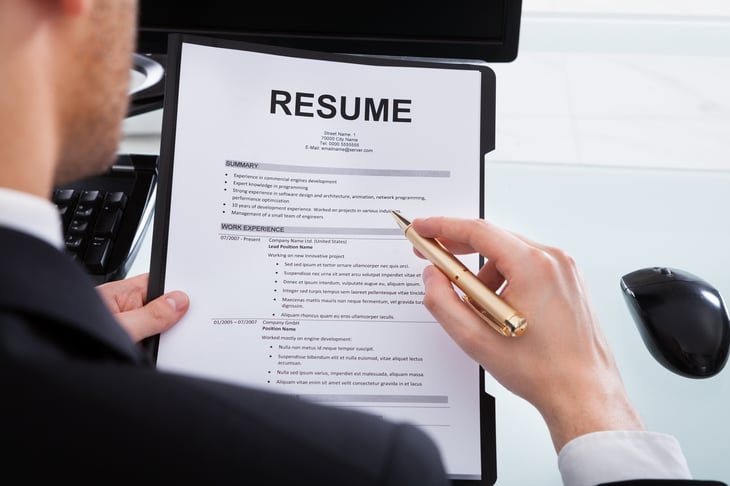
One of the most important economic survival skills for any worker is knowing how to bounce back after losing a job.
As our economy undergoes changes, layoffs increasingly are common. The news is filled with stories about corporate downsizing. Some companies fold after promising beginnings, sending workers in search of new careers.
Getting back into the workplace isn’t always easy — and being out of work can be a major blow to your pocketbook as well as your ego — but there are things you can do to improve your chances of finding and keeping a new job. What follows are eight steps for successfully reviving a career following a dismissal or layoff.
1. Formulate a job-hunting plan

Finding a job is about exploring your options. If you’ve lost a position through a dismissal or layoff, you’ll need to take stock of your assets as an employee so you can identify new job possibilities. Perhaps you’re fortunate enough to be qualified for a variety of jobs, based on your experience. If your background is more limited, you’ll need to research what openings are available in your community and possibly expand your search to other areas. Perhaps it’s time to start a new career. It’s important to be open to new opportunities.
Consider: “How a Late-in-Life Career Change Can Boost Your Fortunes.”
2. Dust off your resume

A good resume is a work in progress. Savvy job seekers revise their resumes each time they apply for a new position so they can emphasize different skills and experiences. Don’t use the same document used for an opening in office management if the job you’re applying for now is in sales. Employers are looking for specific abilities. If you have them, make sure they’re reflected on your resume.
While you’re on the subject, check out: “7 Things You Should Never Put on Your Resume.”
3. Prepare to explain why you’re unemployed

Looking for a job while you’re unemployed puts you at a disadvantage. Employers would rather hire someone who already is working. If you’re out of work, they may feel like you’ve done something wrong to bring about your unemployed status. It’s your task to convince them otherwise. Before you apply for a job, be prepared to address your layoff or dismissal. Don’t blame others for your problems or criticize past employers. That will make you sound disloyal. Just be honest and straightforward. If you were laid off for economic reasons, say so. If you were dismissed rather than laid off, don’t deny it. Succinctly give your side of the story and move the conversation on to your assets. Emphasize what you can bring to the new job.
4. Maintain a positive attitude

If you’re still grieving for the job you lost, you’ll be in no shape to convince anyone that you’re ready for a new challenge. Your goal is to find a new job that you’ll be great at. If you have any doubts about your abilities in the workplace, banish them from your mind. Remember, the first person you have to sell on you is you. If you don’t believe in yourself, no one else will. Be prepared to convince employers that hiring you would be a big win for their company.
5. Don’t delay your job search

Some people who lose their jobs try recover from the blow by taking time off. That’s fine if you can afford it, but remember that you’ll need to explain any long gaps in employment during job interviews. Your resume will look better if you get back to work as soon as possible. Don’t worry if you don’t find the perfect job right away. If you have to take something temporary, that’s better than sitting at home and wishing you were at back at work. Once you’re employed, you’ll be more attractive to recruiters.
6. Reach out to friends and professional contacts

Never underestimate the importance of creating and maintaining a professional network. It’s possible to find work just by responding to online job boards and classified ads, but you’ll stand a better chance of succeeding if you let friends and business contacts know you’re seeking employment. People who are familiar with your credentials can help you identify job possibilities. They also can provide solid recommendations.
Check out: “9 Tips for Successful and Painless Networking.”
7. Be a willing worker

Once you’ve found a job, you’ll need to keep it. During the first months on a job, when you’re likely to be on professional probation, it’s important to make a good impression. One thing all employers look for is a willingness among workers to pitch in and help. When starting a new job, show your enthusiasm by arriving early and staying late. If you think someone needs a hand, offer to help them. If you have any criticisms of the workplace, keep them to yourself.
8. Take ownership of your new job

If you want to thrive in a new job, you need to “own” it. The way to win appreciation is to take pride in what you do. Take care with every task you perform, big or small. Pursuing excellence means never settling for “good enough.” In short, strive to be the sort of employee that you would want working for you. If you genuinely care about your company, it will be reflected in the quality of your work.
What’s your experience searching for a new job or switching careers? Share with us in comments below or on our Facebook page.




Add a Comment
Our Policy: We welcome relevant and respectful comments in order to foster healthy and informative discussions. All other comments may be removed. Comments with links are automatically held for moderation.